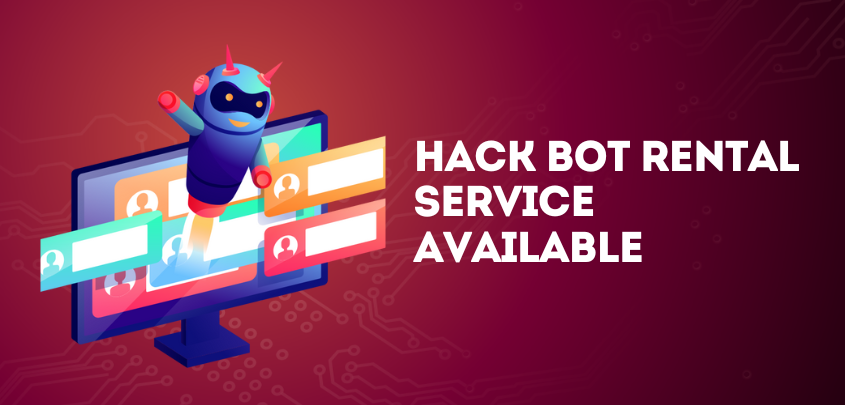
30, May, 2024
Cybercrime Goes Rental:Why You Need to Be Wary Online!
Imagine this: you get an email that looks like it’s from your bank, warning of suspicious activity on your account. You click the link, worried but trusting, and enter your login details. Boom! Your bank account is empty.
Unfortunately, these kinds of online scams are becoming more and more common. And there’s a new player in the cybercrime game making things easier for the bad guys: Hack Bots as a Service (HaaS).
So, what exactly is HaaS?
Think of it like Netflix for cybercrime. Just like you subscribe to your favorite shows, criminals can now rent access to pre-built hacking tools and networks of compromised devices (called botnets). These services often come with user-friendly interfaces, meaning even someone with limited technical knowledge can launch an attack.
Why should you, as a regular person, care?
Here’s the scary part: HaaS lowers the barrier to entry for cybercrime. It’s no longer just reserved for tech-savvy hackers. Now, anyone with a grudge or a thirst for quick cash can potentially launch an attack. This means:
- More Attacks: With HaaS, there’s a higher risk of encountering phishing scams, malware, and other online threats.
- Targeted Attacks: HaaS services can be customized to go after specific victims, making them even more dangerous.
- Trickier to Detect: The constant evolution of these tools and botnets makes them harder to identify and defend against.
So, what can you do to protect yourself?
While HaaS is a growing threat, there are steps you can take to stay safe online:
- Be Skeptical: Don’t click on links or open attachments in suspicious emails, even if they seem to come from a trusted source.
- Think Before You Link: Verify website addresses before entering any personal information. A legitimate bank website won’t have typos in the URL.
- Strong Passwords & MFA: Use strong, unique passwords for all your online accounts and enable Multi-Factor Authentication (MFA) whenever possible.
- Software Updates: Keep your devices and software up-to-date with the latest security patches.
- Security Software: Consider using security software that can help identify and block malicious websites and phishing attempts.
By being aware of HaaS and taking these simple precautions, you can significantly reduce your risk of falling victim to a cyberattack. Remember, online safety is everyone’s responsibility, even your grandma!
Spread the word! Share this post with your friends and family to help them stay safe online too.
